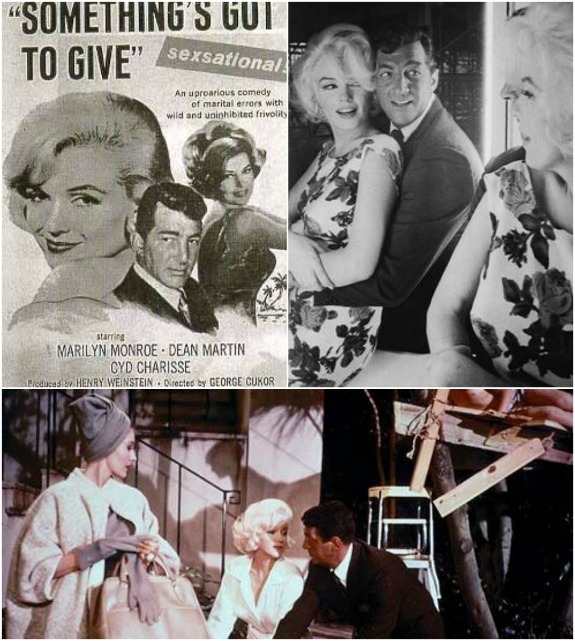After reading the Cold War novel Seven Days in May by Fletcher Knebel and Charles W. Bailey II, Kirk Douglas knew it could be made into a great film. He bought the rights to the novel through his production company Joel Productions, teamed up with director John Frankenheimer and put together a cast of wonderful actors like Burt Lancaster and Fredric March (Douglas himself was to play an important role in the film too). Eventually released in 1964, the result was an excellent political thriller, which is still considered one of the best of its kind.
Having heard about Douglas' plans to picturise Seven Days in May, director Stanley Kubrick wrote Douglas a letter on 8 February 1963. Kubrick had been interested in filming the story himself, but now that Douglas was going to film it, Kubrick decided to offer him some unsolicited advice. Douglas wrote back 11 days later, saying he appreciated Kubrick's suggestions and also asked if they could make another movie together ("How about a comedy? I think I'm pretty funny, don't you?"). The two men had previously worked together on Paths of Glory (1957) and Spartacus (1960) and reportedly had a difficult working relationship. Despite Douglas' suggestion that they work together again, in the end they never did.
 |
Kirk Douglas and Stanley Kubrick on the set of their second and last film together, Spartacus (1960).
|
Transcript:
Mr. Kirk Douglas
707 North Canon Drive
Beverly Hills,
California
February 8th, 1963.
Dear Kirk,
I thought I would be presumptuous enough to drop you a line about your forthcomimg film SEVEN DAYS IN MAY which, as you may know, I had some interest in myself.
I think it's a marvellous story and could be a very important and constructive film. There were a couple of things about it which, in my opinion, detracted from its potential meaning. The most important, I think, is the complete cop-out at the end when the President confronts the Air Force Chairman of the Joint Chiefs of Staff and gets him to admit that if the responsibility were his, he would have done things just in the same way. This is extremely unlikely and takes away from the most important theme in the book, namely the conflict in the Government between intelligent civilian management of the affairs of state versus the driving force of the military-industrial complex. Have you ever seen Eisenhower's famous last speech as President where he warned the country, in a manner extremely untypical for him, of the growing threat of the military-industrial complex - that was his expression.
I think it would be very good if you could dramatise the difficulty a President would have in agreeing to some form of sensible disarmament scheme and how the semi-paranoiac extremists can make great political trouble for him. This is very nicely touched on in the book when the President's Popularity Poll reaches a new low, but I think it's greatly dissipated by the ending.
I should also prefer to see less physical action undertaken by Senators and high Government officials. There's a bit too much creeping and crawling and slugging and gun-play involving these characters and I think it would be much more realistic if this could be delegated to lower echelon characters.
I hope that John and Rod and Eddie don't resent this letter and I leave it to you to present any of these ideas, if you consider them worthy, in your own charming and inimitable manner.
In any event, I wish you the best of luck with the film and give my regards to Eddie and Ann.
Best regards,
(signed "Stanley")
Stanley Kubrick
Transcript:
February 19, 1963
Dear Stanley,
How nice to hear from you again, and I certainly appreciate your suggestions -- but then you know how we geniuses work. You will be pleased to know that we have been thinking about all the points you mentioned. Your letter has served to give us more confidence about the work we must do in these areas. I think we should have an interesting picture and a pretty good cast.
By the way, what's cooking with your project-- what's happening with your lawsuit versus "Failsafe". If there's any way that I can help I wish you'd call on me.
In the meantime, my sincere wishes for the success of your picture.
Also, I think it's about time we did another picture together. How about a comedy? I think I'm very funny, don't you?
Let's keep in touch.
Sincerely,
(signed "Kirk")
Kirk Douglas
Mr. Stanley Kubrick
Shepperton Studios
Shepperton, Middlesex
England
Source:
Wisconsin Center for Film and Theater Research
Note: During the filming of his Cold War satire Dr. Strangelove (1964), Kubrick learnt that Fail-Safe (1964), directed by Sidney Lumet, was being produced at the same time. Fail-Safe's plot was so similar to Red Alert (the novel by Peter George on which Dr. Strangelove was based) that George filed a lawsuit for plagiarism and later settled out of court. As both films were being produced by the same studio (Columbia Pictures), Kubrick insisted that his film was released first. He got his wish-- Fail-Safe opened eight months later than Dr. Strangelove and as a result performed poorly at the box-office.
 |
Burt Lancaster, Fredric March and Kirk Douglas-- powerhouse acting in Seven Days in May.
|











